Irban Beta 5/3.125 mg Tablet 10's
MRP ₹210
(Inclusive of all Taxes)
₹31.5 Cashback (15%)
Provide Delivery Location
Online payment accepted
 Prescription drug
Prescription drugWhats That
Composition :
Manufacturer/Marketer :
Consume Type :
Expires on or after :
Return Policy :
About Irban Beta 5/3.125 mg Tablet
Irban Beta 5/3.125 mg Tablet belongs to a group of antihypertensive medicines used to treat hypertension (high blood pressure). It is also effective in treating moderate to severe heart failure and angina (heart-related chest pain), thereby reducing the risk of heart attack or stroke in adults. High blood pressure is a condition in which the force of blood against the artery walls is very high. It will be an addition to the workload of the heart and arteries. If it continues for a long time, the heart and arteries may not function properly and damage the heart, brain, and kidneys' blood vessels, resulting in heart failure, stroke, or kidney failure.
Irban Beta 5/3.125 mg Tablet contains Carvedilol and Ivabradine combination. Carvedilol acts by relaxing blood vessels by blocking the action of certain natural substances like epinephrine or adrenaline. Ivabradine works by reducing the heart rate by a few beats per minute. In this way, it lowers the heart's requirement for oxygen, especially in situations where an angina attack can happen. Thus, it lowers the raised blood pressure and keeps the heartbeat slowly reducing with less force, reducing the risk of having a stroke, a heart attack, or other heart problems.
Irban Beta 5/3.125 mg Tablet should be taken as prescribed. The dose of the medicine will be decided by your doctor based on your medical condition. In some cases, Irban Beta 5/3.125 mg Tablet may cause certain side effects such as diarrhoea, headache, weight gain, slow heartbeat, dry eyes, tiredness, dizziness, or low blood pressure. Most of these side effects do not require medical attention and gradually resolve over time. However, if the side effects persist, please consult your doctor.
Irban Beta 5/3.125 mg Tablet should be avoided if allergic to it. If you are pregnant or breastfeeding, please inform your doctor before taking this medicine. Avoid taking Irban Beta 5/3.125 mg Tablet if you have bronchitis, asthma, emphysema (a lung condition causing shortness of breath), severe liver disease, heart block, slow heart rate, or sick sinus syndrome (abnormal heart rhythms caused by malfunction of the heart’s natural pacemaker). Irban Beta 5/3.125 mg Tablet is not recommended for children below 18 years of age. Inform your doctor if you have diabetes, coronary artery disease, fluid retention, thyroid disorder, angina (chest pain), kidney disease, slow heartbeats, Raynaud’s syndrome (a circulatory problem), or pheochromocytoma (tumor in the adrenal glands), or undergoing any surgery.
Uses of Irban Beta 5/3.125 mg Tablet
Directions for Use
Key Benefits
Irban Beta 5/3.125 mg Tablet contains Carvedilol in the controlled release form and Ivabradine. Carvedilol plays a vital role in relaxing blood vessels by blocking the action of certain natural substances in your body. Thus, it lowers blood pressure and reduces the risk of having a stroke, a heart attack or other heart problems. Ivabradine works by reducing the heart rate by a few beats per minute. In this way, it lowers the heart's requirement for oxygen, especially in situations where an angina attack can happen.
Storage
Drug Warnings
If you are allergic to Irban Beta 5/3.125 mg Tablet or any other medicines, please tell your doctor. Irban Beta 5/3.125 mg Tablet is not recommended for children below 18 years of age. If you are pregnant or breastfeeding, please inform your doctor before taking Irban Beta 5/3.125 mg Tablet . If you are about to undergo any surgery, you are advised to inform your doctor that you are taking Irban Beta 5/3.125 mg Tablet . Avoid taking Irban Beta 5/3.125 mg Tablet if you have bronchitis, asthma, emphysema (a lung condition causing shortness of breath), severe liver disease, heart block, slow heart rate, or sick sinus syndrome (abnormal heart rhythms caused by malfunction of the heart’s natural pacemaker). If you have diabetes, coronary artery disease, fluid retention, thyroid disorder, angina (chest pain), kidney disease, slow heartbeats, Raynaud’s syndrome (a circulatory problem), or pheochromocytoma (tumor in the adrenal glands), inform your doctor before taking Irban Beta 5/3.125 mg Tablet .
Drug-Drug Interactions
Drug-Drug Interactions
Login/Sign Up
Using Irban Beta 5/3.125 mg Tablet together with posaconazole may significantly increase the blood levels and effects of Irban Beta 5/3.125 mg Tablet.
How to manage the interaction:
Taking Irban Beta 5/3.125 mg Tablet with Posaconazole together is generally not recommended as it can result in an interaction, it can be taken if a doctor has advised it. However, contact a doctor immediately if you experience sudden dizziness, lightheadedness, fainting, shortness of breath, chest pain or tightness, rapid heartbeat, or memory loss. Do not discontinue any medications without consulting a doctor.
Coadministration of Irban Beta 5/3.125 mg Tablet with Ketoconazole can increase the risk or severity of side effects.
How to manage the interaction:
Taking Irban Beta 5/3.125 mg Tablet with Ketoconazole is not recommended as it can result in an interaction, it can be taken if a doctor has advised it. However, if you experience sudden dizziness, lightheadedness, fainting, shortness of breath, chest pain or tightness, rapid heartbeat, or memory loss, contact a doctor immediately. Do not discontinue any medications without consulting a doctor.
Using Irban Beta 5/3.125 mg Tablet together with voriconazole may significantly increase the blood levels and effects of Irban Beta 5/3.125 mg Tablet.
How to manage the interaction:
Taking Irban Beta 5/3.125 mg Tablet with Voriconazole together is generally avoided as it can result in an interaction, it can be taken if a doctor has advised it. However, contact a doctor immediately if you experience dizziness, shortness of breath, rapid heartbeat. Do not discontinue any medications without consulting a doctor.
Coadministration of Irban Beta 5/3.125 mg Tablet with ceritinib can increase the levels and effects of Irban Beta 5/3.125 mg Tablet.
How to manage the interaction:
Taking Irban Beta 5/3.125 mg Tablet with Ceritinib together can result in an interaction, it can be taken if your doctor has advised it. However, if you experience any unusual symptoms contact your doctor immediately. Do not stop using any medications without talking to a doctor.
Coadministration of Irban Beta 5/3.125 mg Tablet with Imatinib can increase the levels of Irban Beta 5/3.125 mg Tablet in the body. This increases the risk or severity of side effects.
How to manage the interaction:
Taking Irban Beta 5/3.125 mg Tablet with Bosutinib together is generally avoided as it can result in an interaction, it can be taken if your doctor has advised it. However, contact a doctor immediately if you experience sudden dizziness, lightheadedness, fainting, shortness of breath, chest pain or tightness, rapid heartbeat, or memory loss. Do not discontinue any medications without consulting a doctor.
Coadministration of thioridazine with Irban Beta 5/3.125 mg Tablet can increase the risk of low blood pressure especially when standing up.
How to manage the interaction:
Taking Thioridazine with Irban Beta 5/3.125 mg Tablet is not recommended, but can be taken together if prescribed by a doctor. However, consult a doctor if you experience any excessive sweating, palpitations, chest discomfort, or shortness of breath. Do not discontinue any medication without consulting a doctor.
Coadministration of Irban Beta 5/3.125 mg Tablet with ofloxacin may raise the risk of an abnormal heart rhythm.
How to manage the interaction:
Although Ofloxacin and Irban Beta 5/3.125 mg Tablet interact, they can be used if prescribed by a doctor. Consult a doctor if you have sudden dizziness, lightheadedness, fainting, shortness of breath, or heart palpitations. Do not discontinue any medications without consulting a doctor.
Coadministration of Irban Beta 5/3.125 mg Tablet with rifampicin can decrease the blood levels of Irban Beta 5/3.125 mg Tablet, which may make the medication less effective.
How to manage the interaction:
Although there is an interaction between Irban Beta 5/3.125 mg Tablet and rifampicin, they can be taken together if prescribed by a doctor. Do not discontinue any medications without consulting a doctor.
Using Irban Beta 5/3.125 mg Tablet together with Daunorubicin can increase the risk of an irregular heart rhythm that may be serious.
How to manage the interaction:
Although taking Daunorubicin and Irban Beta 5/3.125 mg Tablet together can cause an interaction, it can be taken if your doctor has suggested it. It is important to keep a close watch on your heart. If you have any of these symptoms - irregular heart rhythm, heart condition, long qt syndrome from birth, conduction problems, prolonged diarrhea, vomiting, complications, sudden dizziness, feeling lightheaded, fainting, difficulty breathing, or heart palpitations - make sure to call a doctor right away. Do not discontinue any medications without consulting a doctor.
Using Irban Beta 5/3.125 mg Tablet together with ketoconazole may significantly increase the blood levels and effects of Irban Beta 5/3.125 mg Tablet.
How to manage the interaction:
Taking Irban Beta 5/3.125 mg Tablet with Ketoconazole together can result in an interaction, it can be taken if a doctor has advised it. However, contact a doctor immediately if you experience sudden dizziness, lightheadedness, fainting, shortness of breath, chest pain or tightness, rapid heartbeat, or memory loss. Do not discontinue any medications without consulting a doctor.
Drug-Food Interactions
Drug-Food Interactions
Login/Sign Up
Diet & Lifestyle Advise
- Maintain a low salt diet and minimize eating processed foods as they contain more sodium. Try to replace salt with spices or herbs to add flavor to the food.
- Do regular exercise such as cycling, walking, jogging, dancing, or swimming for a minimum of 30 minutes per day.
- Chronic stress may also cause high blood pressure. Therefore, avoid stress by changing your expectations and the way you react in certain situations, and do activities that you enjoy by making time for yourself.
- Maintain a diet that is rich in fruits, vegetables, whole grains, and low-fat dairy products.
- Try to include heart-healthy omega-3 fatty acid-containing foods in your daily diet. You can also use low-fat cooking oil like olive oil, soybean oil, canola oil, and coconut oil, which may help in lowering high blood pressure.
- Quit smoking and avoid the consumption of alcohol.
Side Effects of Irban Beta 5/3.125 mg Tablet
- Diarrhoea
- Headache
- Weight gain
- Slow heartbeat
- Dry eyes
- Tiredness
- Dizziness
- Low blood pressure
Habit Forming
Therapeutic Class
All Substitutes & Brand Comparisons
RX
Out of StockIvabid CV 3.125 mg/5 mg Tablet 14's
Abbott India Ltd
₹269
(₹17.29 per unit)
8% CHEAPERRX
Out of StockCardivas IN 3.125 mg/5 mg Tablet 10's
Sun Pharmaceutical Industries Ltd
₹215
(₹19.35 per unit)
2% COSTLIERRX
Ivabrad C 3.125 Tablet 10's
Lupin Ltd
₹263.5
(₹23.72 per unit)
25% COSTLIER
Author Details
We provide you with authentic, trustworthy and relevant information
Drug-Diseases Interactions
Drug-Diseases Interactions
Login/Sign Up
FAQs
Irban Beta 5/3.125 mg Tablet contains Carvedilol and Ivabradine combination. Carvedilol acts by relaxing blood vessels by blocking the action of certain natural substances like epinephrine or adrenaline. Ivabradine works by reducing the heart rate by a few beats per minute. In this way, it lowers the heart's requirement for oxygen, especially in situations where an angina attack can happen.
You are recommended to avoid sodium, potassium, magnesium and calcium-rich foods with Irban Beta 5/3.125 mg Tablet as they may reduce the effect of Irban Beta 5/3.125 mg Tablet . Also, avoid intake of grapefruit juice with Irban Beta 5/3.125 mg Tablet as it may increase the levels of Irban Beta 5/3.125 mg Tablet in the blood and cause adverse effects.
Do not take more than the prescribed dose of Irban Beta 5/3.125 mg Tablet as it may cause Irban Beta 5/3.125 mg Tablet overdose resulting in symptoms such as dizziness, fits, fainting, weakness, bluish-coloured fingernails, uneven heartbeats and shortness of breath. However, if you experience any of these symptoms while taking Irban Beta 5/3.125 mg Tablet , please consult a doctor immediately.
Drug-Drug Interactions Checker List
- ASPIRIN
- AMLODIPINE
- FUROSEMIDE
- LEVOTHYROXINE
- HYDROCHLOROTHIAZIDE
- LORAZEPAM
- DULOXETINE
- PREGABALIN
Special Advise
- Monitor your blood pressure regularly, and if you notice any fluctuations, please consult a doctor.
- A low salt diet and regular exercise are recommended along with Irban Beta 5/3.125 mg Tablet for effective results.
Disease/Condition Glossary
Hypertension: Blood pressure is the measurement of the force that the heart uses to pump blood to all parts of the body. Hypertension is a chronic condition in which blood pressure is too high. This condition can lead to hardened arteries (blood vessels), decreasing the blood and oxygen flow to the heart. Raised blood pressure can cause chest pain (angina) and heart attack (when the blood supply to the heart is blocked). Additionally, high blood pressure also causes brain damage (stroke) and kidney failure. High blood pressure can be diagnosed with the help of a blood pressure monitor or sphygmomanometer. Systolic pressure is the pressure when the heart pumps blood out. On the other hand, diastolic pressure is the pressure when your heart is at the resting stage between heartbeats. If your blood pressure is 140/90 mm of Hg, it means the systolic pressure is 140 mm of Hg, and diastolic pressure is 90 mm of Hg. Normal blood pressure lies between 90/60 mm of Hg and 120/80 mm of Hg. If the blood pressure is 140/90 mmHg or greater, it is considered high blood pressure.

Have a query?
Alcohol
Safe if prescribed
Avoid consumption of alcohol with Irban Beta 5/3.125 mg Tablet as it may increase the risk of low blood pressure and cause adverse effects such as dizziness, fainting, light-headedness or headache.
Pregnancy
Consult your doctor
If you are pregnant or planning pregnancy, inform your doctor before taking Irban Beta 5/3.125 mg Tablet . Your doctor may prescribe this medicine if the benefits outweigh the risks.
Breast Feeding
Consult your doctor
Irban Beta 5/3.125 mg Tablet is not recommended for use in breastfeeding as it may pass into breast milk and harm your infant. Hence, if you are breastfeeding, inform your doctor before taking Irban Beta 5/3.125 mg Tablet . Your doctor may suggest you to stop feeding while on treatment with this medicine.
Driving
Safe if prescribed
Irban Beta 5/3.125 mg Tablet may cause dizziness or tiredness in some people. Therefore, avoid driving if you feel dizzy or tired after taking Irban Beta 5/3.125 mg Tablet .
Liver
Consult your doctor
If you have a pre-existing or a history of liver disease, inform your doctor before taking Irban Beta 5/3.125 mg Tablet . Your doctor may adjust the dose of this medicine or prescribe a suitable alternative based on your condition.
Kidney
Consult your doctor
If you have a pre-existing or a history of kidney disease, inform your doctor before taking Irban Beta 5/3.125 mg Tablet . Your doctor may adjust the dose of this medicine or prescribe a suitable alternative based on your condition.
Children
Safe if prescribed
Irban Beta 5/3.125 mg Tablet is not recommended for use in children and adolescents below 18 years as the safety and effectiveness are not established.

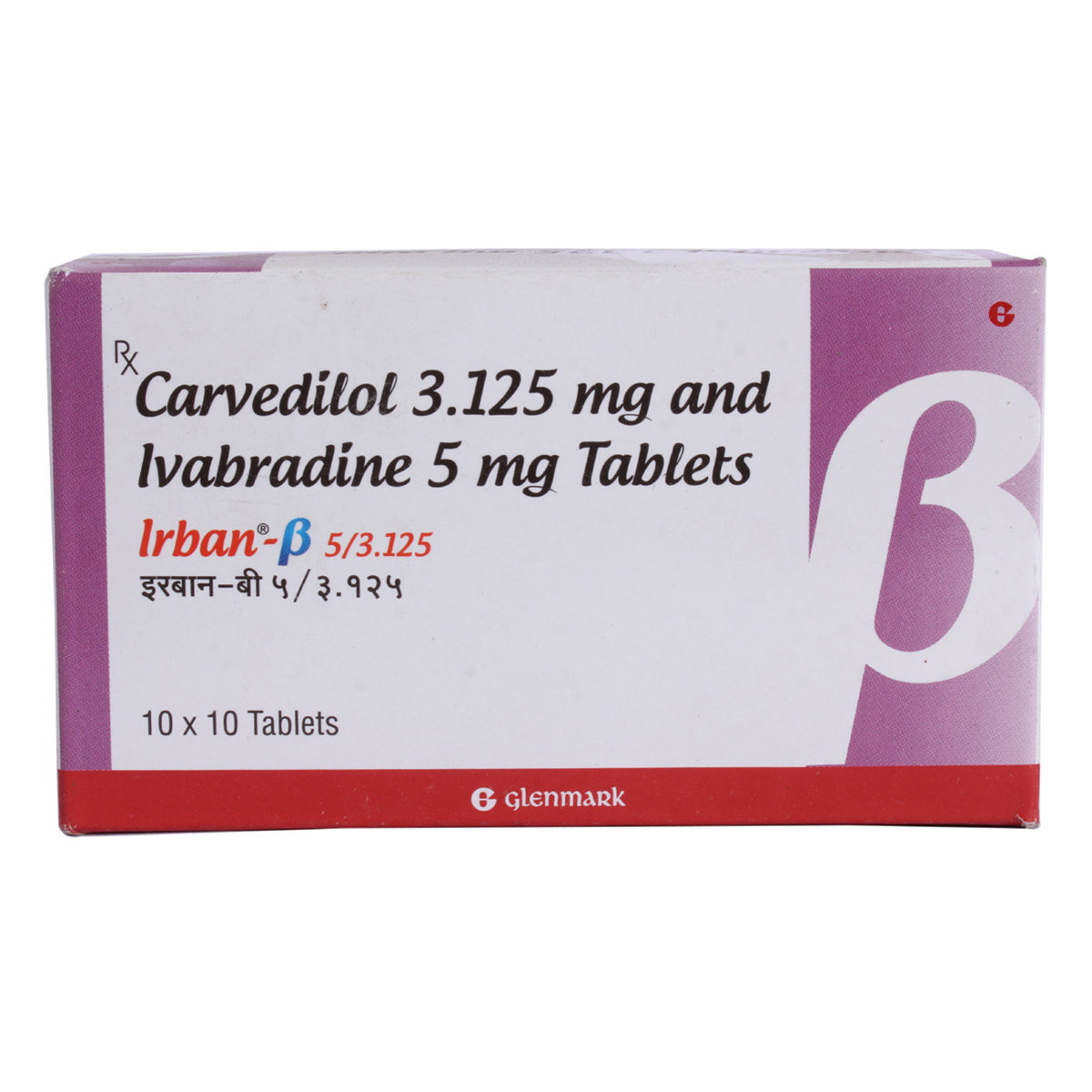
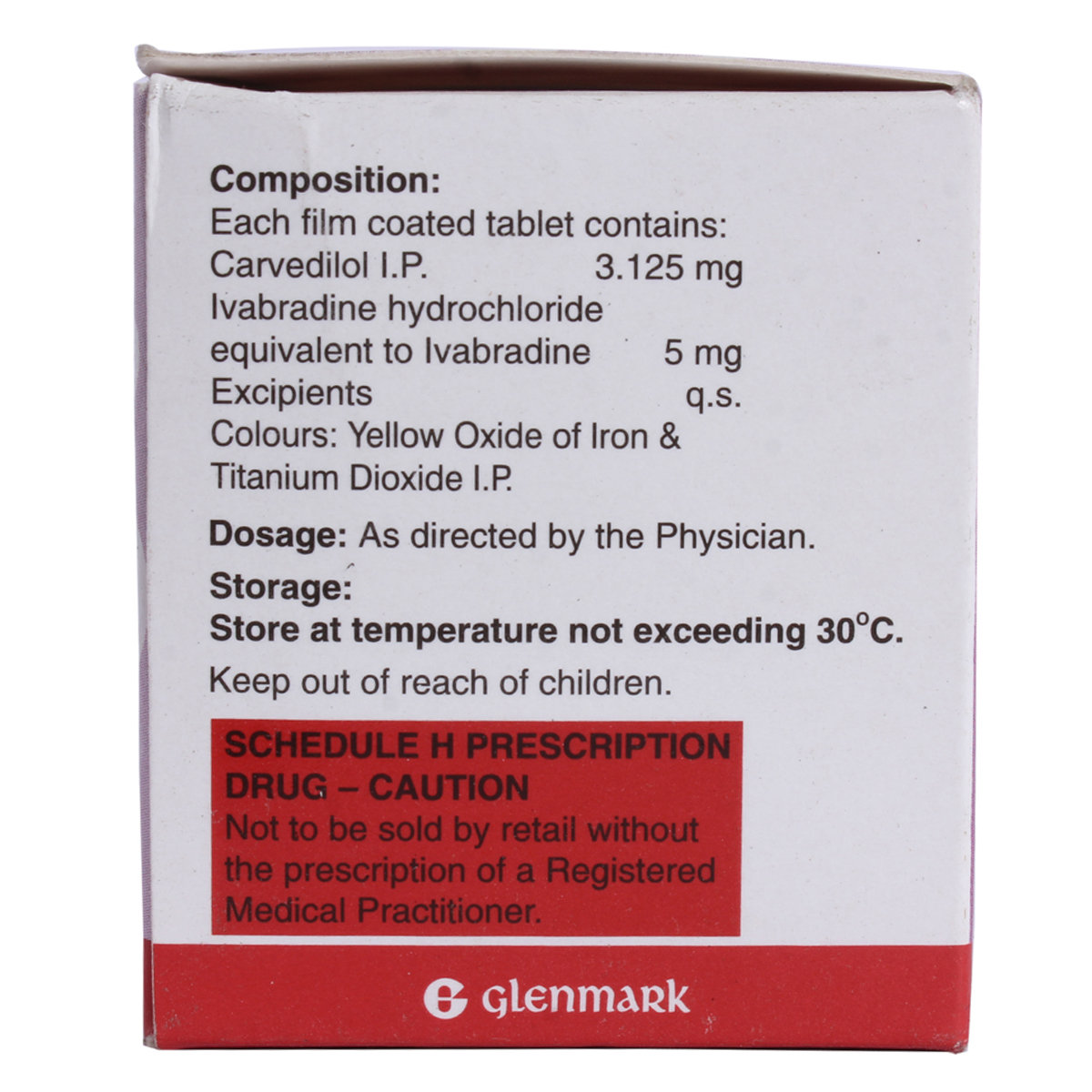
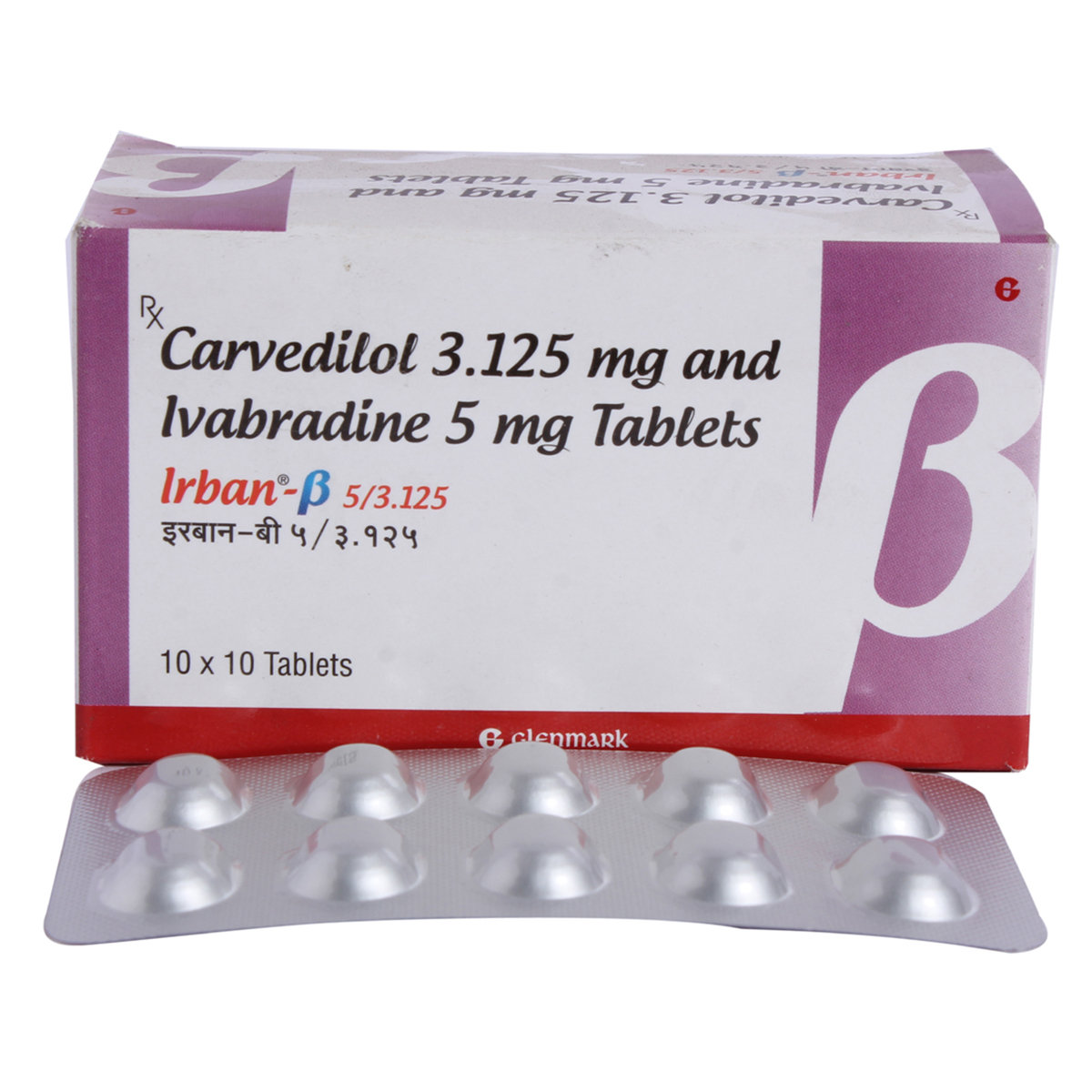





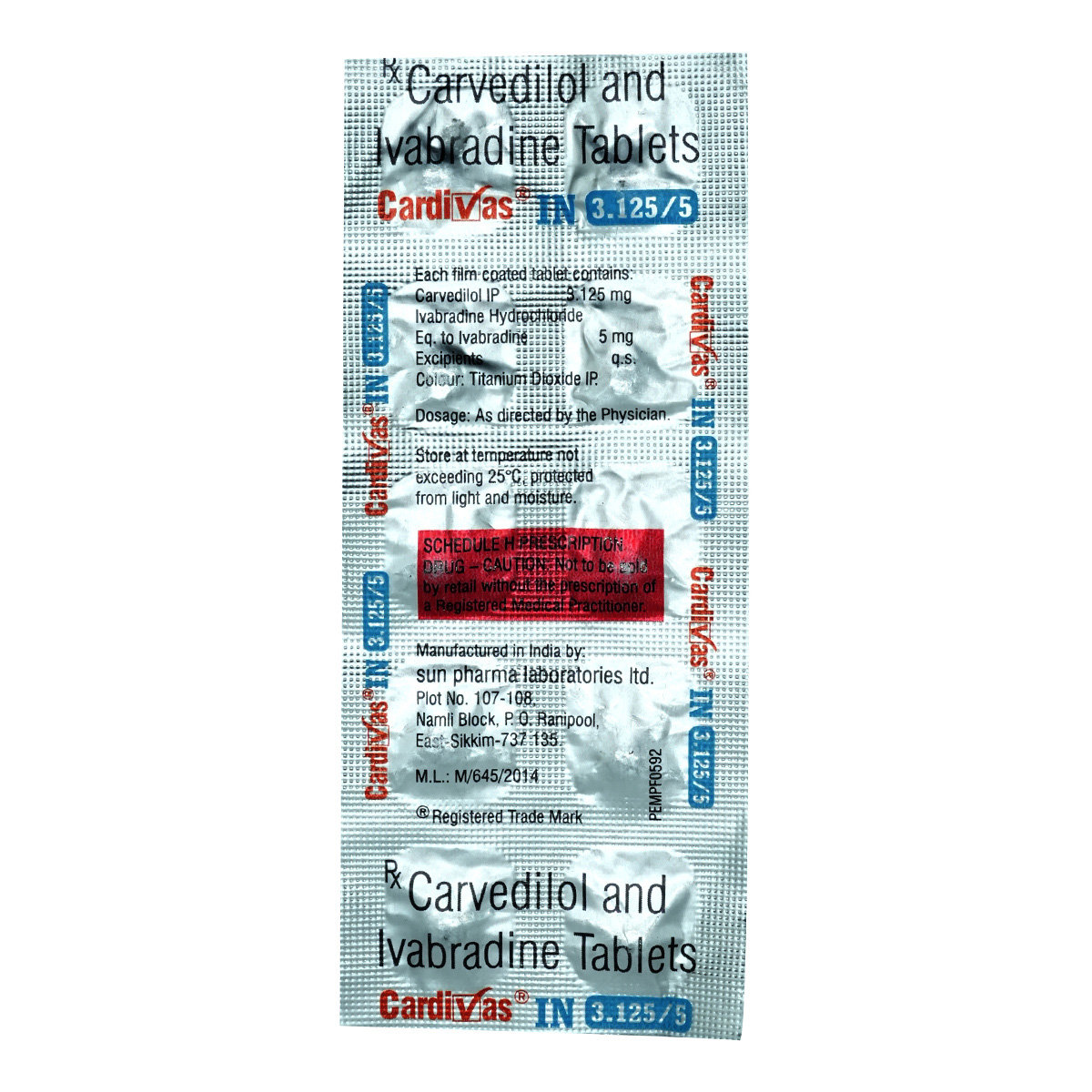
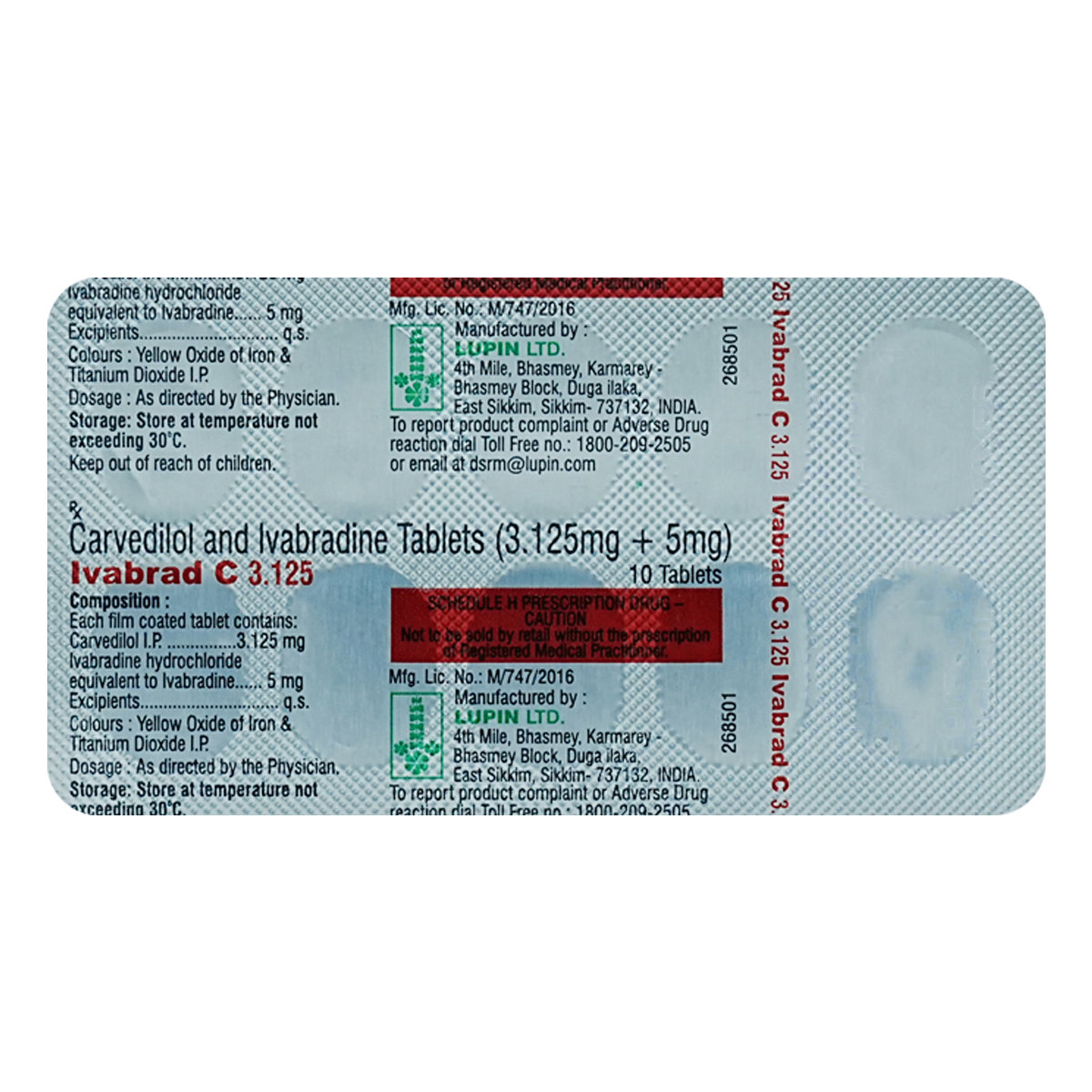

.jpg?tr=q-85)

